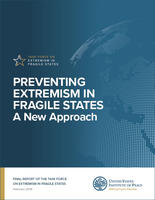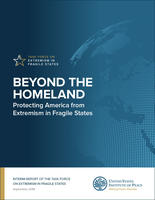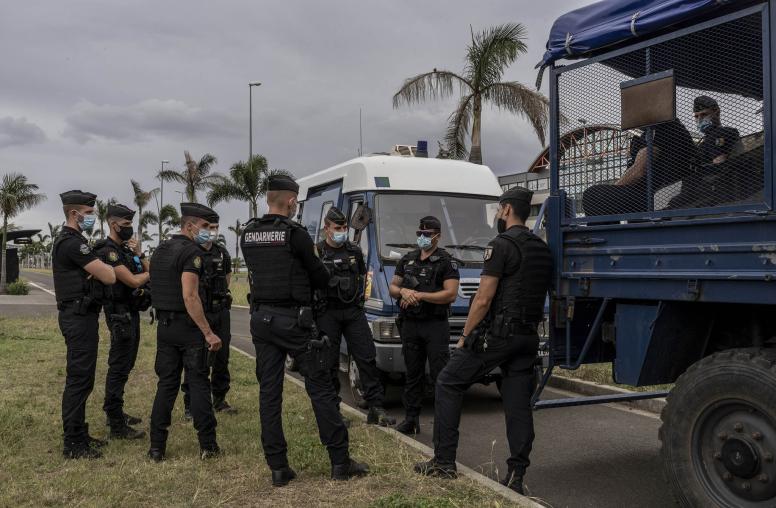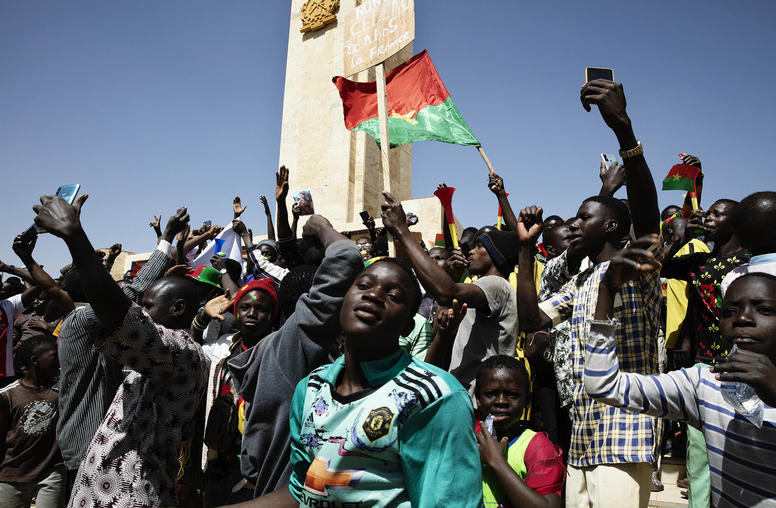A New Approach to Preventing Extremism in Fragile States
Final Report of the Task Force on Extremism in Fragile States
Read the event coverageSince 9/11, the United States has successfully prevented another mass-casualty attack on its soil. But despite trillions of dollars spent and tens of thousands of lives lost, terrorism is spreading. We need to adopt a new prevention paradigm, one that not only responds to terrorism but also prevents the underlying causes of extremism and violence in fragile states.
Congress charged the U.S. Institute of Peace, an independent, bipartisan leader in reducing and preventing conflict, with convening The Task Force on Extremism in Fragile States. The Task Force has developed a proposal for a new cost-effective, evidence-based, and coordinated preventive approach. Modest U.S. investments—if they are strategic, coordinated, well-timed, and sustained—can empower communities over time to better resist extremism on their own and motivate international donors to support this cause. On April 23rd, we discussed the challenge of supporting fragile states to build resiliency, sustain progress and prevent future threats and instability. Take part in the conversation on Twitter with #PreventExtremism.
Audio recordings of each panel are included below.
Agenda
9:30am - 10:30am - Recommendations of the Task Force on Extremism in Fragile States
- Secretary Madeleine Albright
Chair, Albright Stonebridge Group - The Honorable Stephen J. Hadley
Chair of the Board of Directors, U.S. Institute of Peace - Governor Tom Kean
Co-Chair, Task Force on Extremism in Fragile States - The Honorable Nancy Lindborg
President, U.S. Institute of Peace - David Ignatius, moderator
Columnist and Author, The Washington Post
10:30am - 11:30am - Prioritizing Prevention Across the United States Government
- Chris Milligan
Counselor, The U.S. Agency for International Development - Denise Natali
Assistant Secretary, Bureau of Conflict and Stabilization Operations, U.S. Department of State - Lieutenant General Michael Nagata
Director for Strategic Operational Planning, National Counterterrorism Center - Alina Romanowski
Principal Deputy Coordinator for Counterterrorism, U.S. Department of State - Ambassador Paula Dobriansky, moderator
Senior Fellow for The Future of Diplomacy Project, Harvard University
11:30am - 11:45am - Coffee Break
11:45am - 12:45pm - International Prevention Efforts
- Ambassador Diane Corner
Counsellor of Foreign and Security Policy, British Embassy in Washington, D.C. - Ambassador Martin Dahinden
Ambassador of Switzerland to the United States of America - Habib Mayar
Deputy General Secretary of the g7+ - Ulrika Modéer
UN Assistant Secretary-General and Director of UNDP’s Bureau for External Relations and Advocacy - Sam Worthington
President and CEO, InterAction - Raj Kumar, moderator
Founding President and Editor-in-Chief, Devex
Preventing Extremism in Fragile States: A New Approach
Despite our success protecting America’s homeland, extremism is spreading. Since 9/11, the number of terrorist attacks worldwide per year has increased fivefold. As long as this continues, the United States will remain vulnerable to terrorism while extremism contributes to chaos, conflict, and coercion that drains U.S. resources, weakens our allies, and provides openings for our competitors.
Beyond the Homeland: Protecting America from Extremism in Fragile States
Today, on the 17th anniversary of the September 11 attacks, the Task Force is releasing its first report, which warns that the United States urgently needs a new approach to stem the spread of violent extremism and previews a comprehensive preventative strategy that focuses on strengthening resilience against extremism in fragile states.





